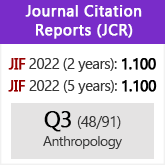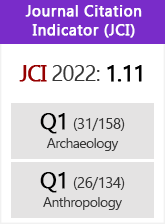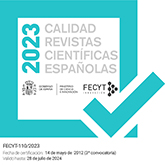Archaeology and politics: development of Spanish archaeology in its historical context
DOI:
https://doi.org/10.3989/tp.1995.v52.i1.429Keywords:
Historiography, Archaeology, Institutions, History of ArchaeologyAbstract
This paper offers an outline of the history of Spanish archaeology during the eighteenth. nineteenth and twentieth centuries. This article focuses on the relationship between the development of archaeology and the political interests which marked each historical moment. Spain is embedded in a European context. As in the other European countries archaeology has been influenced by régime changes throughout the last three centuries. In the eigthteenth century archaeology was used as a tool by the monarchy in order lo legitimize its prerogatives. In the nineteenth century the emergence of nationalisms motivated its institutionalization. Political changes in this century have also found their expression in archaeology. Over the whole of this period there has been a clear, though seldon explicit, relationship between archaeology and power.
Downloads
Download data is not yet available.
Downloads
Published
1995-06-30
How to Cite
Díaz-Andreu, M., & Mora, G. (1995). Archaeology and politics: development of Spanish archaeology in its historical context. Trabajos De Prehistoria, 52(1), 25–38. https://doi.org/10.3989/tp.1995.v52.i1.429
Issue
Section
Articles
License
Copyright (c) 1995 Consejo Superior de Investigaciones Científicas (CSIC)

This work is licensed under a Creative Commons Attribution 4.0 International License.
© CSIC. Manuscripts published in both the printed and online versions of this Journal are the property of Consejo Superior de Investigaciones Científicas, and quoting this source is a requirement for any partial or full reproduction.All contents of this electronic edition, except where otherwise noted, are distributed under a “Creative Commons Attribution 4.0 International” (CC BY 4.0) License. You may read here the basic information and the legal text of the license. The indication of the CC BY 4.0 License must be expressly stated in this way when necessary.
Self-archiving in repositories, personal webpages or similar, of any version other than the published by the Editor, is not allowed.
















